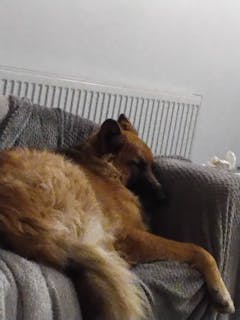Please note:
A faecal egg count is a snapshot of a specific moment in time. The test detects eggs of mature parasites that live inside the body and pass their eggs to the outside by shedding them into the dogs' stools. At the time of testing, the parasites may be too young to produce eggs. If no eggs are being shed, the infection cannot be detected. There is also a possibility the eggs are in such small numbers at the time of testing that they will be undetectable, thus showing a negative result.
The above is extremely rare, but we want to highlight the possibilities.
Important note:
This test is not intended as a replacement for worming your pet in the first place. It is merely a way of monitoring the worm egg burden of your dog or cat and treating it accordingly.
Many owners choose to worm their pets while others never do, and that is, of course, entirely your decision. However, we strongly recommend that puppies and kittens follow a veterinary flea and worming schedule as they will have inherited a parasite burden from their mother. Not doing so can pose a severe health risk to very young animals. If you have any questions, please don’t hesitate to contact us or your vet.
The laboratory, Feclab, employs industry-standard screening methods. Faecal worm egg screens, larvae counts, and giardia antigen screening are not, and can never be, a definitive reporting method. The laboratory makes every reasonable effort to ensure the accuracy and uniformity of screening methods. The result must be read as a snapshot of the content of the sample at the time it arrives in the laboratory and is only an indication of the worm burden of the animal.
Whether you worm conventionally, naturally, or not at all, it’s a good idea to regularly test your dog's worm burden to ensure they get the protection they need and stay as healthy as possible.
Worm eggs and larvae aren't visible to the naked eye. They're found in water bowls, on toys, clinging to blades of grass, on snails and their trails, in dog poo, and on dead animals. If they get close enough, it’s possible to ingest worms from sniffing another dog’s bottom.
Worms
Your dog swallows the worm eggs, they hatch in the intestine, and the worms attach themselves to the lining of your dog’s gut. They then release millions of eggs which your dog passes out in their poo, and the cycle continues. So if your dog tests positive for eggs, they’ve got worms.
Lungworm
Your dog swallows lungworm larvae, and they enter the gut. The larvae then burrow out of the gut into the bloodstream and make their way to the heart and sit alongside it. On the way, they become adult lungworms. Once there, they release millions of eggs, which break into the lungs and make their way up until your dog coughs and swallows them. They go back through the gut and pass out in the stool.
















